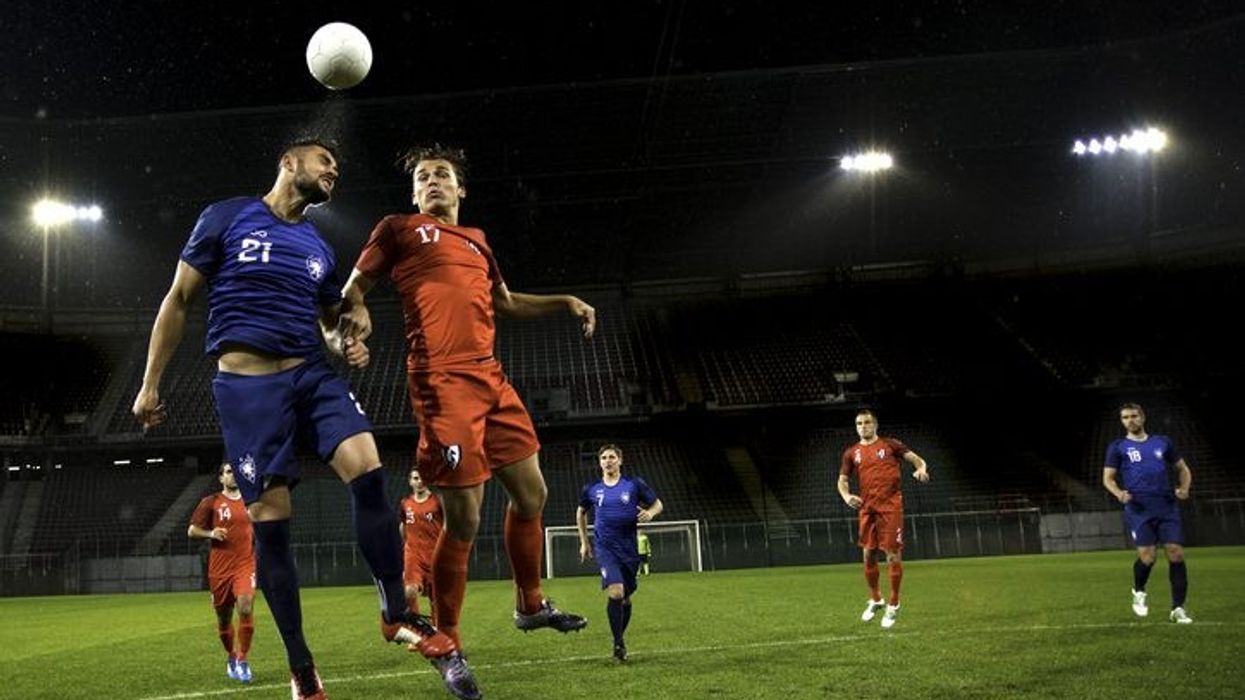A large study on Friday (17) suggested that top-level Swedish football players, with the exception of goalkeepers, have a significantly higher risk of developing dementia compared to the general population over the past century.
The study provides further evidence linking football to a greater risk of degenerative brain disorders, with the repeated heading of the ball believed to be a contributing factor.
The study, which analysed medical records of over 6,000 male footballers in Sweden's top division from 1924 to 2019, was published in The Lancet Public Health journal.
The recent study states top-level Swedish football players were found to be 1.5 times more likely to develop Alzheimer's disease and other dementias than a control group of 56,000 similarly aged Swedish men.
The study revealed that 9 per cent of male footballers in the Swedish top division were diagnosed with neurodegenerative disease, compared to 6 per cent of the control sample.
The study also showed that goalkeepers, who rarely head the ball, did not have an increased risk of degenerative brain disorders.
"This finding lends support to the hypothesis that heading the ball might explain this association," the study's lead author Peter Ueda of Sweden's Karolinska Institutet told AFP.
According to Ueda, the recent Swedish study is the largest research conducted on the link between football and degenerative brain disorders since a 2019 Scottish study, which suggested that footballers were 3.5 times more likely to develop such disorders.
Additionally, the study found that footballers tended to live slightly longer than similarly aged men, possibly due to their higher levels of exercise and socioeconomic status.
Interestingly, the study did not find any increased risk of motor neuron diseases such as ALS among the footballers and even suggested a slightly lower risk for Parkinson's disease.
However, Ueda cautioned that the observational study did not prove that playing football directly caused dementia, and its results cannot be extended to female, amateur, or youth football.
Given the significant time between football play and the development of brain disorders, many of the players studied were active during the mid-20th century.
This means advancements in equipment, knowledge, and training have likely made modern professional football safer.
However, Ueda also suggested that contemporary players may face a greater risk due to exposure to intense football from a young age.
Gill Livingston, a professor in psychiatry of older people at the University College London, described the study as a "high-quality paper" that provides further compelling evidence that footballers who experience head-to-ball contact are at a higher risk of developing dementia.
"We need to act to protect people's heads and brains and keep playing sport," said Livingston, who was not involved in the study.
Research into the effects of head injuries in sports and their long-term consequences has rapidly increased in recent years, particularly in rugby union and rugby league.
For instance, a study conducted last year found that former international rugby players face a 15-fold higher risk of developing motor neuron disease.
Furthermore, a group of former rugby union players is currently pursuing legal action against several governing bodies, claiming that these organisations failed to safeguard them from permanent injuries.
The Football Association in England is experimenting with prohibiting children under 12 from heading the ball in specific grassroots leagues and competitions. If the trial is successful, they will request that the International Football Association Board remove heading entirely for those under 12.
However, activists have demanded a complete ban on heading for young children. Luke Griggs, the CEO of Headway, a brain injury charity, stated that “It is important that football is willing to evolve as our understanding of the long-term implications of repeated sub-concussive impacts increases.”
Dr Adam White, head of brain health at the Professional Footballers’ Association, urged the Industrial Injuries Advisory Council to recognize dementia as an industrial disease. He also mentioned that they are advocating for temporary concussion substitutions and reducing heading during training to improve head trauma management.
Additionally, Dr Richard Oakley, associate director of research at Alzheimer’s Society, stressed the need for further research to determine the factors behind the link between head injuries and dementia.
He added that sporting organisations require more clarity to implement appropriate measures for player protection.
(With inputs from AFP and The Guardian)




